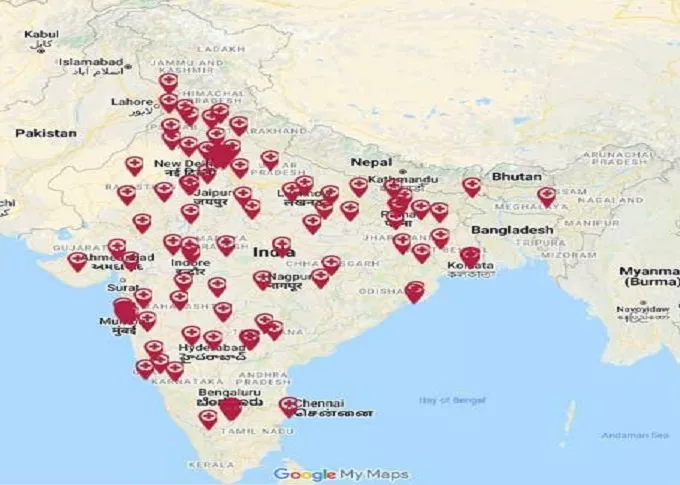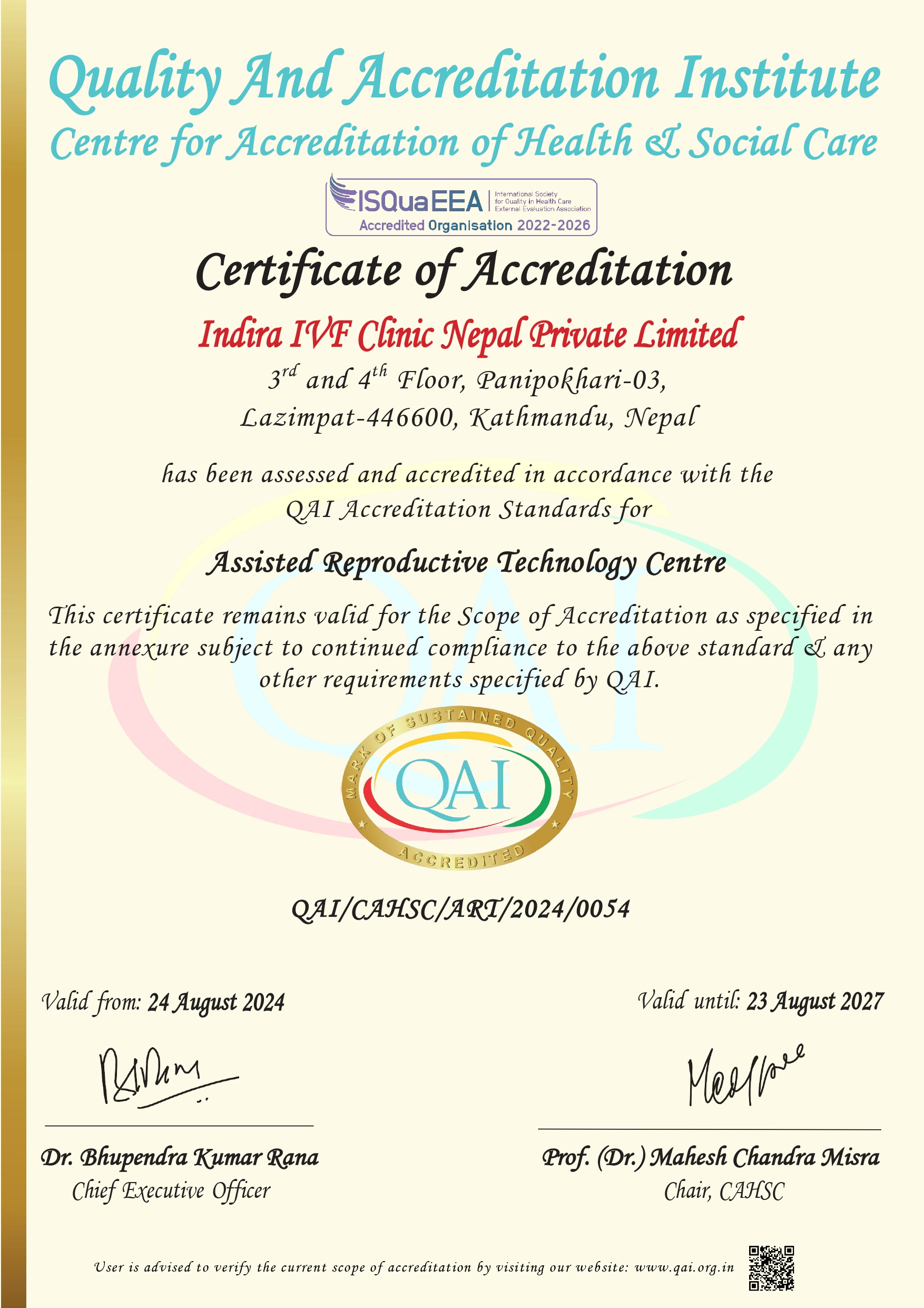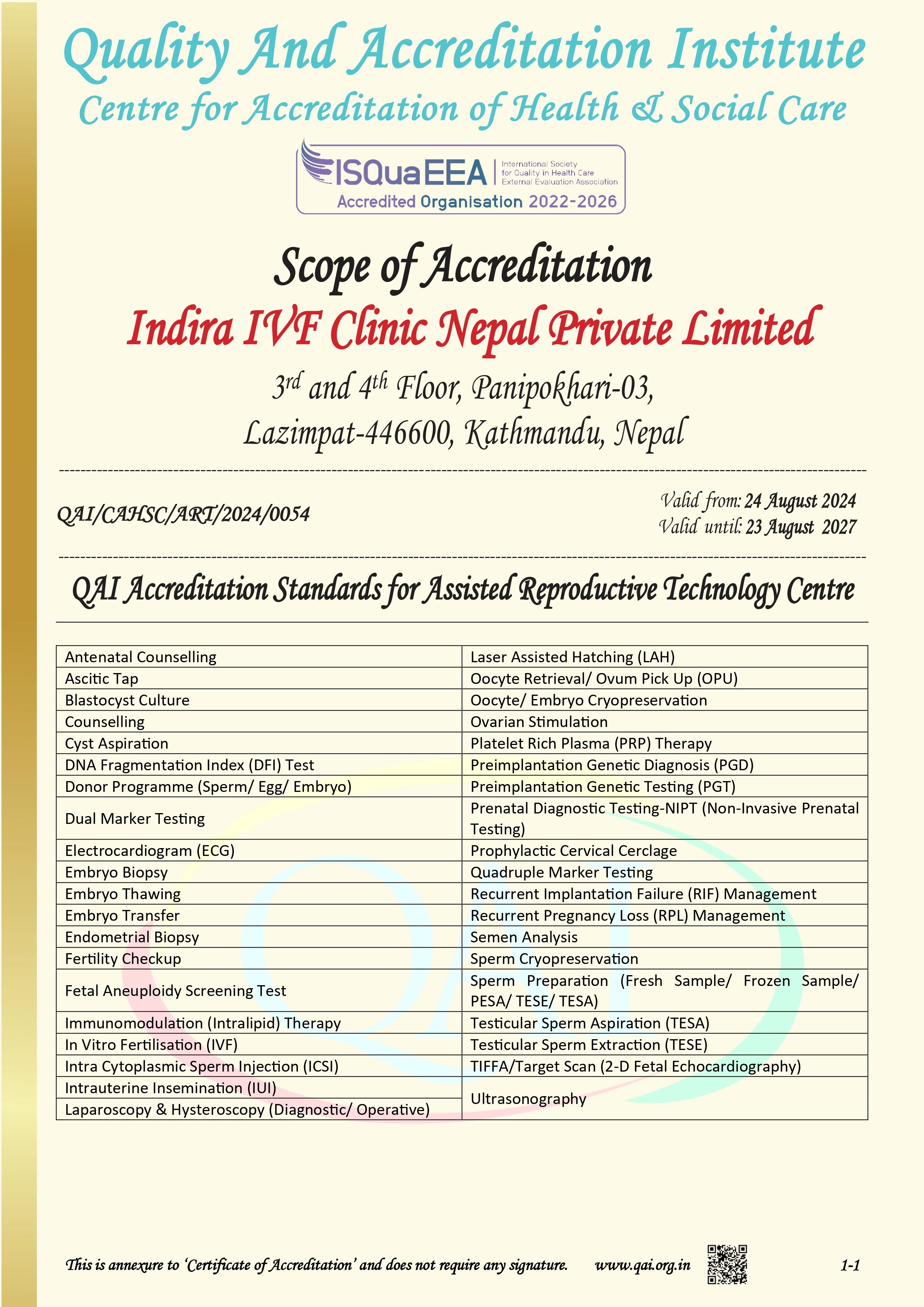What is Hysteroscopy Surgery?
Visit our IVF Centre in Nepal today!
Indira IVF Clinic Nepal PVT Ltd, Infront of Panipokhari Heights, Near Embassy of Japan, Panipokhari-3, Kathmandu (Nepal)-44600

Meet our Fertility Experts

Dr. Neha Homagai,
Chief Infertility Specialist, MD (OB/GYN) & MBBS
Dr. Neha Homagai is a Nepal Medical Council Registered IVF specialist. She has done her 1-year fellowship in Chennai. Dr. Neha is also a Chief Infertility Specialist at Indira IVF Centre in Kathmandu and brings unparalleled expertise in assisted reproductive technology, empowering couples to overcome infertility challenges. With compassion and extensive experience, she has become a trusted name in the field, offering unwavering support and hopes to couples on their transformative journey to parenthood.

Dr. Manisha Acharya,
IVF Specialist, MS (OB/GYN) & MBBS
Dr. Manisha Acharya is widely recognised for her profound knowledge and outstanding skills in assisted reproductive techniques. She provides exceptional care to couples struggling with infertility, guiding them towards successful outcomes. Her dedication and success rate have positioned her as one of the top fertility specialists at Indira IVF, where she continues to make a significant impact on her patients’ lives.
When is Hysteroscopy Test Recommended?
Hysteroscopy is recommended in IVF (In Vitro Fertilization) when there is a need to assess the uterine cavity for any potential abnormalities that could impact the success of the procedure. It is typically performed prior to the IVF cycle to ensure optimal conditions for embryo implantation. Hysteroscopy helps identify issues like uterine polyps, fibroids, scar tissue, or congenital abnormalities that may interfere with implantation or pregnancy. By detecting and treating these conditions, hysteroscopy can improve the chances of successful embryo implantation and increase the likelihood of a successful IVF outcome. This procedure plays a vital role in the comprehensive evaluation of the uterine environment and assists in optimizing the chances of achieving a successful pregnancy through IVF.
What are the benefits of a Hysteroscopy Procedure?
There are several benefits of Hysteroscopy in infertility testing and treatment. It allows direct visualisation of the uterine cavity, enabling the detection and removal of abnormalities that may hinder conception. Compared to traditional testing techniques, Hysteroscopy surgery is less invasive, offers better accuracy, and reduces the need for multiple procedures. At Indira IVF Clinic in Nepal, our expert doctors utilise this advanced procedure to improve fertility outcomes by addressing uterine factors that may contribute to infertility.
What is the procedure for a Hysteroscopy?
Below are the key steps involved in a Hysteroscopy Procedure:
- Preparation:Before the procedure, the patient may be given anaesthesia or a sedative to minimize discomfort. The doctor may also dilate the cervix to allow for the insertion of the hysteroscope.
- Insertion:The hysteroscope, a thin, lighted instrument, is carefully inserted through the vagina and cervix and into the uterus. Carbon dioxide gas or a fluid solution may be used to expand the uterine cavity, providing better visibility.
- Visual Examination: As the hysteroscope is advanced, it allows the doctor to visualize the uterine lining and look for any abnormalities. The images may be displayed on a monitor for a clear view.
- Treatment (if necessary): If any issues are detected, additional instruments can be passed through the hysteroscope to perform treatments. This may include removing polyps, fibroids, adhesions, or taking samples for biopsy.
- Completion:Once the examination and any necessary treatments are completed, the hysteroscope is gently removed, and the procedure is concluded.
What are the risks and complications of Hysteroscopy?
Hysteroscopy is generally a safe procedure, but like any medical intervention, it carries some risks. Possible complications of hysteroscopy include uterine perforation, infection, bleeding, and damage to surrounding organs. However, these complications are rare and occur in less than 1% of cases. At Indira IVF Clinic in Nepal, our experienced fertility experts prioritise patient safety and take all necessary precautions to minimise the risks associated with Hysteroscopy. Rest assured that your well-being is our utmost priority throughout the entire procedure.
What is the success rate of IVF post Hysteroscopy?
The success rate of IVF post hysteroscopy can vary depending on individual factors and the specific reason for the hysteroscopy. However, hysteroscopy is often performed to optimize the uterine environment for embryo implantation. By addressing any abnormalities or removing obstacles, it can potentially improve the success rate of IVF by enhancing the chances of successful embryo implantation and pregnancy.
What is the Hysteroscopy Cost in Nepal?
The cost of hysteroscopy in Nepal can vary depending on various factors such as the type of hysteroscopy, the clinic or hospital, and any additional procedures required. On average, the cost of hysteroscopy in Nepal ranges from NPR 15,000 to NPR 60,000. It's important to note that this is a general cost range and prices may differ based on individual circumstances and healthcare providers.
Why Choose Indira IVF for Hysteroscopy?

Highly Skilled Doctors
Our highly skilled team of doctors specializes in hysteroscopy procedures and ensures personalized care throughout the process.

Advanced Technology
We use cutting-edge hysteroscopy equipments and adhere to strict quality standards, ensuring accurate diagnosis and effective treatment.

Compassionate Care
Indira IVF offers compassionate care, understanding the emotional aspect of fertility treatments.
First QAI Accredited IVF/ART Centre in Nepal
Indira IVF proudly stands as the first IVF/ART Centre in the country to receive accreditation from the Quality and Accreditation Institute (QAI). This prestigious accreditation is a testament to our unwavering commitment to providing the highest standards of healthcare in fertility treatment.
The QAI accreditation is a mark of quality and assurance, indicating that our clinic not only meets but exceeds the rigorous standards set for healthcare delivery. This recognition ensures that every patient who walks through our doors can trust us to provide safe, reliable, and advanced fertility treatments. From state-of-the-art technology to highly trained professionals, our processes and protocols are designed to offer the best possible care.
Patients at Indira IVF Centre in Kathmandu can be assured that our care adheres to international standards, as our clinic undergoes regular audits and assessments to maintain this esteemed accreditation. This ensures that the quality of care you receive is always at the forefront of global best practices. We remain committed to helping you on your fertility journey with the confidence that you are in safe and capable hands.






